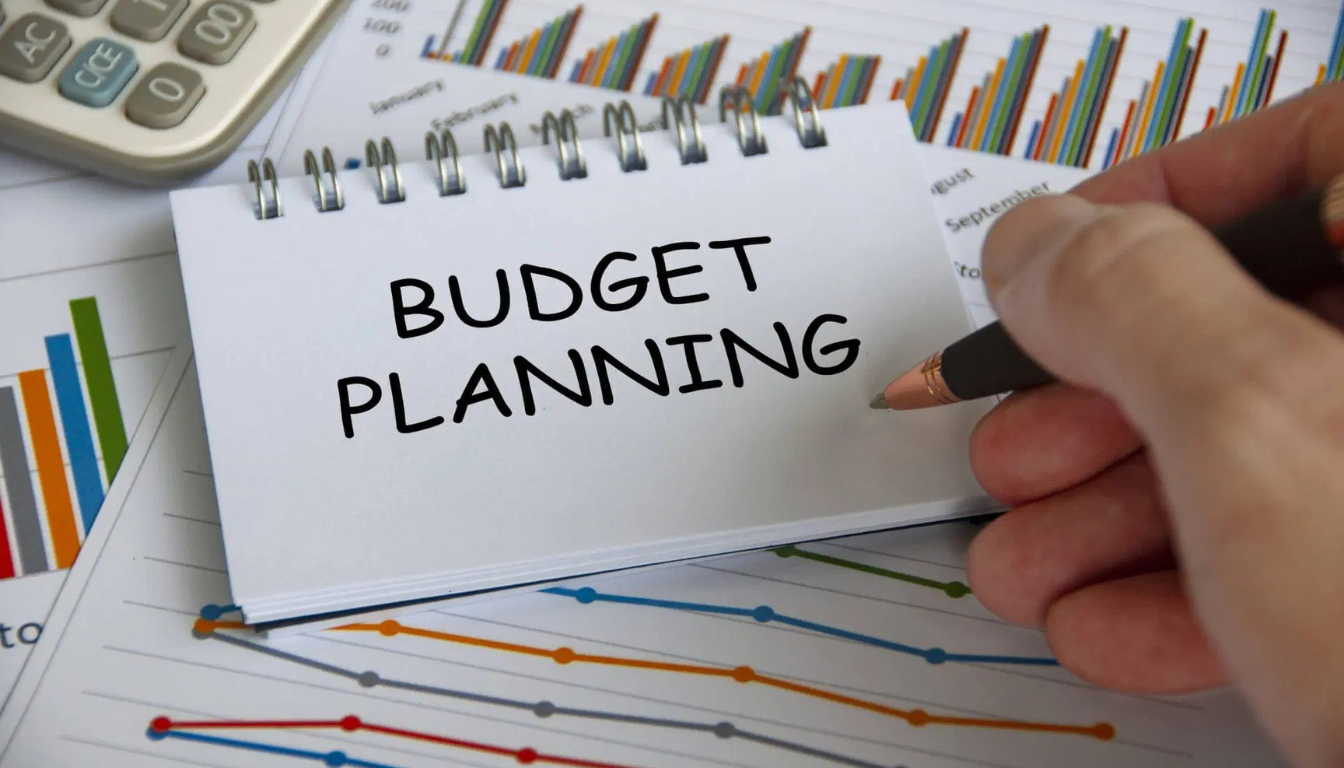Event Budget Format: 7 Templates and Planning Sheets for 2026

An event budget format is essential for tracking expenses, managing costs, and ensuring your event runs smoothly. In this article, we dive into the top 7 event budget templates and planning sheets that cater to different needs and preferences. Whether you're planning a corporate event, a wedding, or a small gathering, these event budget planner tools will help you keep your finances in check and your planning process seamless.
Key Takeaways
- Event budget formats and planning sheets streamline financial management, helping planners track costs efficiently and avoid unexpected expenses
- Choosing the right event planner budget template requires understanding the event's format and specific goals, ensuring it fits diverse financial tracking needs
- Different budget formats (spreadsheet, PDF, software-based) offer unique advantages for various event types and planning styles
- Regularly monitoring and adjusting your event budget planner is essential for maintaining financial health throughout the event planning process
- The best event planning budget sheet combines ease of use with comprehensive tracking capabilities tailored to your specific needs
Understanding Event Budget Formats and Templates

An event budget format refers to the structure and organization system used to track and manage event finances. These formats come in various types—from simple spreadsheet templates to sophisticated software platforms—each designed to help event planners efficiently manage financial details, estimate costs, and track expenditures.
The importance of event budgeting cannot be overstated. It helps determine economic viability, aids in making informed spending decisions, and measures overall success. Event budget planners keep organizers and clients aligned, enhancing competitive edge and contributing to event success. A well-structured event planning budget sheet keeps finances on track, minimizes surprises, and fosters clear understanding of resource allocation.
Event budget formats enable users to categorize expenses and revenue streams efficiently, offering structured frameworks for listing income and costs. This helps identify unnecessary expenses, manage finances effectively, and ensure all necessary costs are accounted for.
Benefits of Using Event Budget Planning Sheets
Event budgeting tools streamline financial management for planners, enhancing tracking capabilities and enabling real-time expense monitoring. These event budget planner tools account for all potential expenses, minimizing surprises and ensuring smooth event execution.
Event planning budget sheets save time by offering structured approaches to financial management, allowing planners to focus on other critical aspects. These formats keep expenses in check, making them indispensable for event organizers.
Top 7 Event Budget Format Options

With many event budget templates and planning sheets available, choosing the right format can be daunting. To make your decision easier, we have compiled a list of the top 7 event budget formats that cater to various needs and preferences. From highly customizable tools to straightforward, user-friendly options, these event planner budget templates will help you manage your event finances effectively and ensure a seamless planning experience.
ClickUp's Comprehensive Event Budget Template
ClickUp's event budget format offers highly customizable views for efficient budgeting. It integrates with project management tools, enhancing workflow and allowing users to categorize expenses effectively for better tracking and cost management.
Smartsheet's Detailed Event Budget Template
Smartsheet's event planning budget sheet provides pre-built categories, visualization tools like pie charts and bar graphs, and focuses on early-stage planning. Essential categories for venue, staffing, marketing, and services simplify the budgeting process.
Eventbrite's Simple Event Budget Template
Eventbrite offers a straightforward event budget format with color-coded layouts and automated calculations. With five main expense categories, this user-friendly event budget planner reduces errors and makes budgeting visually intuitive.
Hopin's All-in-One Event Budget Template
Hopin provides a versatile multi-tabbed workbook format suitable for various events. This comprehensive event planning budget sheet includes revenue tracking and profitability calculations for complete financial oversight.
Note: Hopin was acquired by RingCentral Events in late 2023, though their budget template remains available as a free download.
Google Sheets Event Budget Template
The Google Sheets template is a free, accessible event budget planner usable from any device. Its collaborative editing capabilities allow multiple team members to contribute in real-time, ensuring accurate expense tracking.
Excel Event Budget Template
Excel's event budget format offers extensive functionalities with advanced calculations and formatting options. Known for complex calculations and detailed tracking, it's ideal for planners needing meticulous financial oversight.
Offsite's Customizable Event Budget Template
Offsite's event budget format aligns with organizational objectives and facilitates comprehensive cost management. It provides detailed tracking and ensures alignment with broader strategies, helping planners achieve financial efficiency.
How to Choose the Right Event Budget Format

Choosing the right event budget template depends on factors like the event’s format—whether in-person, hybrid, or virtual—each with distinct financial considerations. Customization of the template should align with the specific goals and scale of the event being planned. Understanding stakeholder interests can also help in tailoring the budget template to meet diverse financial tracking needs.
Tracking historical financial data from past events aids in accurate cost estimation for future budgets. Additionally, real-time collaboration is crucial, allowing multiple team members to track expenses simultaneously and making the planning and budgeting process more efficient, including considerations for cash flow.
By considering these factors, event planners can choose the right budget template that suits their needs and ensures financial success.
Choosing the right event budget format depends on your event's specific needs. Consider these key factors:
Format Type: Choose between spreadsheets (Excel, Google Sheets) for flexibility, PDF forms for sharing, or software platforms for comprehensive features.
Collaboration Needs: Cloud-based formats like Google Sheets work best for teams needing simultaneous access and real-time updates.
Complexity Requirements: Match your event budget format's complexity to your event—simple events need basic templates, while multi-day events benefit from detailed planning sheets.
Integration Capabilities: Consider whether your event budget planner needs to connect with project management, accounting, or vendor management tools.
Tracking historical financial data from past events aids in accurate cost estimation. By considering these factors, planners can choose the right format that ensures financial success.
Summary
Choosing the right event budget format is a critical component of successful event planning. Using event planning budget sheets and planner templates helps organizers manage their finances efficiently, ensuring that all potential expenses are accounted for and tracked. By following the steps outlined in this guide, planners can create comprehensive budgets that support their event goals and maximize ROI.
Whether you choose a simple spreadsheet format, a sophisticated software platform, or something in between, the key is consistency and accuracy. The best event budget planner is one that you'll actually use throughout the entire planning process. Start with one of the seven formats outlined in this guide, customize it to your needs, and watch how proper budgeting transforms your event planning success.
FAQs
- What is an event budget format?
An event budget format is a structured document or system that assists event planners in effectively tracking and managing their financial resources. It provides a framework for organizing income and expenses, typically including categories, line items, and calculations. Utilizing a well-designed event planning budget sheet can streamline the budgeting process, ensuring that all expenses are accounted for efficiently.
- Why is using an event budget planner important?
Utilizing an event budget planner is crucial as it ensures economic viability, facilitates informed spending decisions, and allows for effective measurement of overall success. A proper event budget format keeps all stakeholders aligned on financial expectations, helps identify cost-saving opportunities, and provides a clear record for post-event analysis.
- How do I choose the right event planning budget sheet for my event?
To choose the right event planning budget sheet, assess the specific requirements of your event, including its format (in-person, virtual, or hybrid), size, and complexity. Consider your team's collaboration needs and whether it integrates with your other planning tools. This tailored approach will ensure the template effectively meets your planning objectives.
- What are some common mistakes to avoid when using event budget formats?
Common mistakes include not setting aside a 5 to 10 percent contingency fund, failing to update the budget regularly with real-time data, neglecting hidden costs like taxes and insurance, relying on rough estimates instead of actual vendor quotes, and overestimating attendance numbers. Keep your event budget planner updated and track actual spending against projections.
You may also like
Unique spaces for your next offsite
Find distinctive venues for your upcoming corporate retreat.
Stay Updated with Our Insights
Get exclusive content and valuable updates directly to you.







